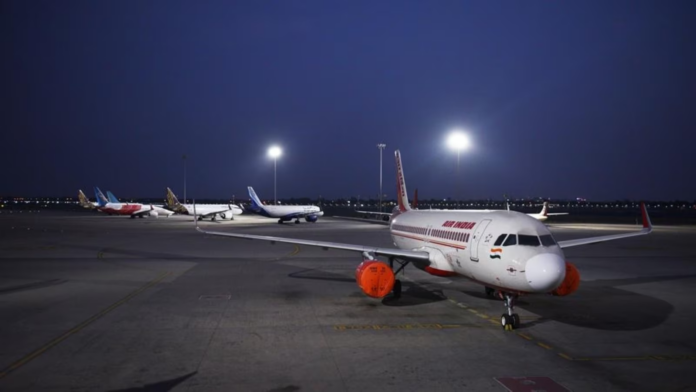In a tense development, a government body has urgently convened a meeting with the CEOs of major airlines after a shocking 70 hoax bomb threats were reported in just one week. The situation has raised serious concerns about the safety of air travel and the preparedness of both airlines and security agencies in dealing with these recurring threats. While no actual bombs have been found, the panic caused by these hoaxes has disrupted hundreds of flights and caused significant distress among passengers.
Is Air Travel Under Threat?
The aviation industry is no stranger to bomb threats, but the sheer volume of 70 hoaxes in such a short span has alarmed both airline officials and government authorities. Each threat, whether credible or not, results in emergency measures being activated, leading to massive delays, evacuations, and security checks. In some cases, flights have had to be diverted or grounded, resulting in chaos at airports across the country.
The latest wave of bomb threats is unprecedented in its intensity, raising the question: Is air travel still safe? While hoax bomb threats are not new, the current surge has put an immense strain on the already stretched security systems of the aviation sector.

The Government’s Response: An Urgent Meeting
The Civil Aviation Ministry wasted no time in addressing the issue, holding an urgent meeting with the CEOs of all major airlines operating in India. The meeting focused on understanding the nature of these hoaxes, how they are being carried out, and what steps need to be taken to mitigate the threat moving forward. Authorities are particularly concerned about how easily these threats are able to disrupt flight operations and whether the existing security protocols are enough to handle such situations.
A spokesperson from the ministry emphasized that while no real bombs have been found, the panic and disruptions caused by these hoaxes are no less damaging. “The threats, though fake, are creating real chaos. We must ensure the safety and confidence of the passengers while also handling the situation in a timely and efficient manner,” he said.
How Airlines Are Responding to the Crisis
Airlines have been quick to react, ramping up their internal security protocols and cooperating fully with government agencies. However, the financial cost of dealing with these hoaxes has been immense. Each threat requires a full-scale emergency response, including increased security checks, flight diversions, and evacuations – all of which are costly and time-consuming.
One airline CEO expressed frustration over the situation, stating, “These hoax threats are not only putting unnecessary pressure on our resources but also affecting the overall passenger experience. Every time a bomb threat is reported, it’s a race against time to ensure safety, and that inevitably leads to flight delays and passenger inconvenience.”
The Directorate General of Civil Aviation (DGCA) has been working closely with airlines to standardize the response procedures and ensure that passengers are kept informed and reassured during such incidents. However, the challenge remains to balance security with operational efficiency.
Who Is Behind the Hoax Bomb Threats?
The real mystery lies in who is behind this wave of hoax bomb threats. Cybercrime units have been called in to trace the origin of these threats, many of which are made via anonymous phone calls or messages. Investigators believe that some of these threats could be the work of pranksters, while others might be an attempt to disrupt the country’s aviation sector deliberately.
While cybersecurity measures have been beefed up, the anonymous nature of these hoaxes makes it challenging to catch the perpetrators. There have been calls for stricter penalties for those found guilty of making false threats, but for now, the focus remains on containing the chaos and ensuring passenger safety.
Impact on Passengers and Air Travel
For passengers, the situation is both frustrating and frightening. Delayed flights, extended security checks, and evacuations are becoming more frequent, with no end in sight. Many passengers have voiced their concerns on social media, questioning the safety of air travel in light of the current threats.
“I was on a flight that was delayed for hours because of a bomb threat. It was terrifying, even though we were assured that it was likely a hoax. The experience has made me reconsider flying anytime soon,” one passenger shared on Twitter.
The repeated hoaxes have led to increased tension at airports, with passengers demanding quicker resolutions and better communication from airlines. However, as airlines and security forces scramble to counter the hoaxes, the overall passenger experience continues to suffer.
What’s Next for Airline Safety?
As the government and airlines work together to address the threat, questions remain about whether more advanced security measures are needed. Some experts are calling for the implementation of AI-based systems to help identify and mitigate potential threats faster, while others believe that better intelligence-sharing between security agencies could help curb the issue.
The Civil Aviation Ministry has assured passengers that their safety remains the top priority and that additional security measures will be put in place if necessary. For now, the public is left hoping that the recent meeting between the government and airline CEOs will lead to a swift and effective solution.
A Wake-Up Call for the Aviation Industry
The recent wave of hoax bomb threats serves as a stark reminder of the vulnerabilities in the aviation sector. While these threats may be fake, the panic and disruptions they cause are all too real. The situation highlights the need for stronger security measures, faster response times, and a concerted effort from both the government and the aviation industry to prevent further incidents.
As the investigation into the hoax threats continues, one thing is clear: the safety of air travel must remain a top priority, and it’s up to both airlines and government bodies to ensure that passengers can fly with confidence once again.

